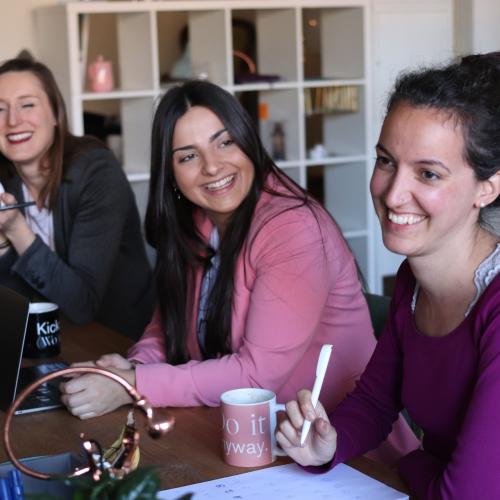We know the decisions people make about sexual health are influenced by many different factors. Women’s Health Clinic’s Sexual Health Facilitator Training (SHiFT) Program offers training and resources for service providers to create or enhance sexual health-related education to use with diverse program participants or clients.
The SHiFT Program provides you with:
- personal learning and reflection from each of the 11 workshops
- opportunity to reflect on how to best adapt the content for your clients
- online access to 11 complete workshop kits and PowerPoint presentations (downloadable through Google Drive) for you to use or adapt with your clients
- post-training support and ongoing access to trainer for questions, conversation, and debriefing about using the workshops with the context of your program needs.
Each workshop contains everything you’ll need to facilitate the topic, including descriptions of activities, handouts, and discussion prompts. Each workshop takes approximately 1 ½ – 2 hours.
SHiFT topics include:
Self-Awareness
Learn what makes us who we are, identify our strengths and fears, and how to be more aware of the present moment.
Communication
Learn how we communicate, types of communication, cultural differences in communication, and build skills for listening and communication.
Media Awareness
Think about media messages, learn how those messages shape the way we see ourselves, our gender roles, and our sexual selves.
Body Image
Reflect on how we see our own bodies, learn about Health Every Size (HAES) and set point theory, and critically analyze our culture’s obsession with weight and diet.
Self-Compassion
Introduction to the concept of self-compassion, assess our own expectations for ourselves, increase our capacity to be gentle with ourselves and accept human imperfections, and to learn how to improve levels of self-compassion.
Diversity
Identify forms of discrimination and oppression, assess personal biases, and learn more about the impact of discrimination.
Talking To Your Kids About Sex
Learn how to create a climate of communication at home, childhood sexual development and strategies for addressing sex-related questions, explore the motivations and reasons why youth have sex; and learn about STBBIs.
Consent
Build skills for communicating consent with sexual partners, learn about the necessary factors of valid consent, explore how as a community, we can work to reduce sexual assault and harassment.
Sexual Orientation and Sex/Gender Identity
Learn about the continuums of gender and sexual identities, understand heterosexism, and identify barriers to equality.
Sex 101
Explore people’s motivations and reasons for having sex, learn about STBBIs and STBBI prevention, birth control and safer sex options, setting sexual limits, and building skills for sexual decision-making.
Emotional Well-Being
Examine emotions in general and our natural resilience methods, how our emotions affect our bodies, how society impacts our natural emotional systems, and how we can prepare to deal with difficult emotions.





